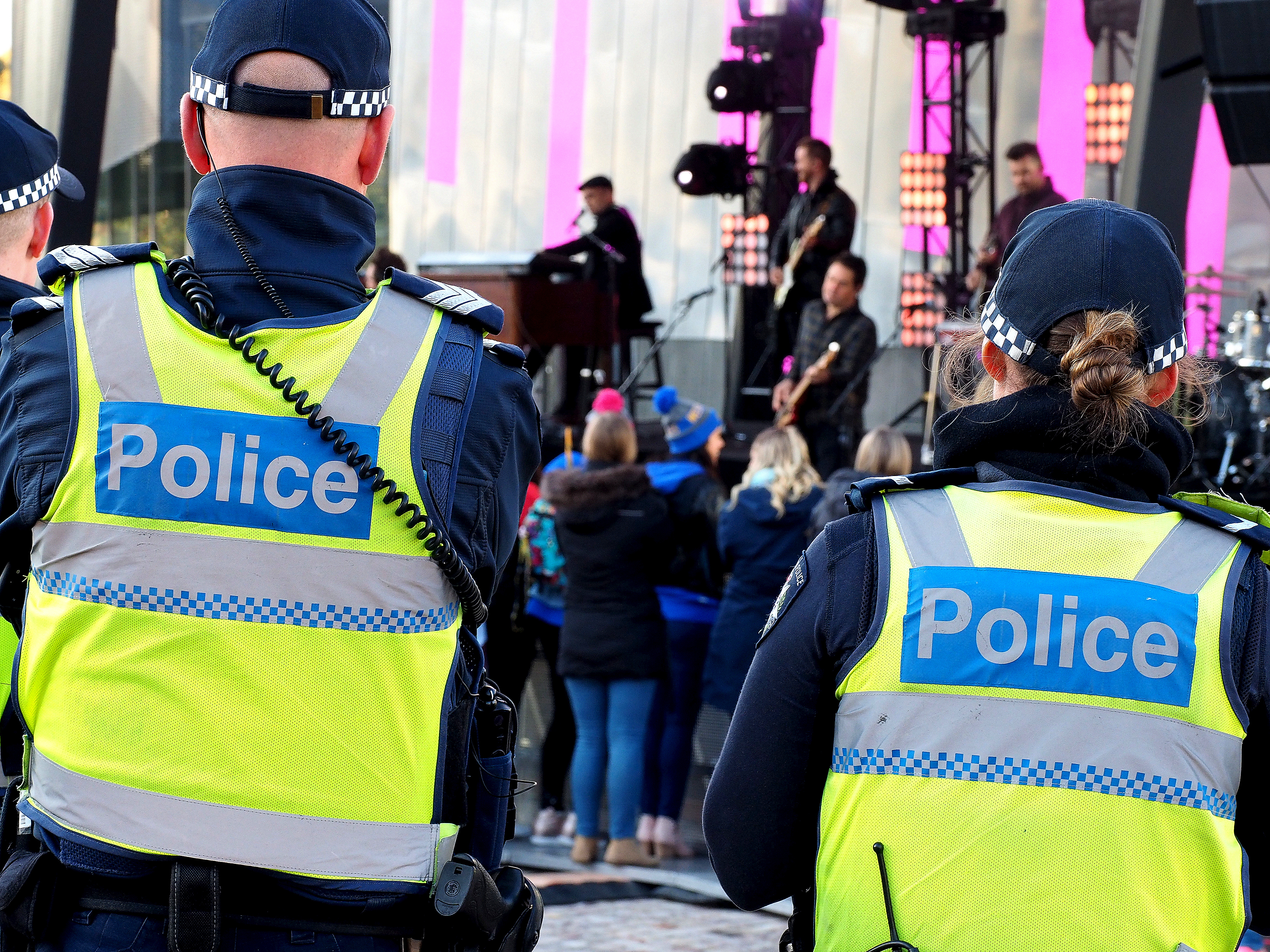Share This Article
241,000 is the number that has been given to NSW Police Officers, representing the quota for conducting personal searches, including strip searches on people for the 2019 financial year.
In fact, in 2019, NSW Police failed to meet its quota by just under 2000 searches.
NSW Greens managed to obtained the shocking revelation through the Freedom of Information (FOI), which is available to the public.
The FOI revealed that the NSW Police Force quota for personal searches for 2019 was 241,632.
In 2019, in trying to reach that quota, police managed to conduct 238,923 personal searches (short of the set quota for 2019).
In 2018, the personal search quota for the NSW Police Force was set at 223,272. They managed to conduct 238,813 personal searches that year, meeting and beating their set quota.
MP David Shoebridge for the Greens strongly believes that these reports support the view that not only adults, but teenagers are being searched by police without sufficient reason.
David Shoebridge has said, “That’s a guaranteed recipe for the abuse of people’s human rights.”
“These quotas will inevitably lead to the abuse of police powers and what these numbers show is that on hundreds of occasions every day there’s this micro abuse of police powers.”
This also supports the view that quota-driven searches are not appropriate as “it runs the risk of creating abuses of the intrusive powers that police have to investigate crime”, said former DPP prosecutor and current president of the NSW Council of Civil Liberties, Nicholas Cowdery.
He also said, “It’s of great concern that police are arbitrarily interfering with people even when they don’t have a proper basis for exercising those coercive powers.”
These figures have come to light only days after the Law Enforcement Conduct Commission declared that it was slashing its public inquiry into police strip searches on minors.
Spokesperson for NSW Police claim, that “the NSW Police Force Deploys various proactive strategies as part of an ongoing commitment to reducing crime and the fear of crime in the community.”
Have a question on this topic of law? Contact us to speak with one of our leading criminal lawyers from Sydney.
When conducting a search on a person, police are required to preserve the persons’ privacy and dignity. This requirement is reflected in section 32 Law Enforcement (Powers and Responsibilities) Act 2002 (NSW).
Broadly, in respect of a person, there are two types of search that police can do, namely, a general search and/or a strip search.
Anything found that’s relevant for the purposes of the search from a legal search by police can be seized and detained pursuant to section 21 Law Enforcement (Powers and Responsibilities) Act 2002 (NSW) only if the police suspects on a reasonable basis that it’s stolen, unlawful ascertained, may show evidence of a crime, is a dangerous article or illegal drug.
Click here to read our previous article on an outline on the law and limitation for police to conduct a general search on a person.
When Can Police Conduct a Strip Search on a Person in NSW?
A strip search can be done either with a warrant or without a warrant.
Section 31 of the Law Enforcement (Powers and Responsibilities) Act 2002 (NSW) outlines when police can and can’t strip search someone without a warrant.
in summary, NSW Police aren’t allowed to strip search someone in a location other than a police station (or place of detention) unless the police officer holds reasonable grounds to suspect that the strip search is necessary for the purposes of a search and the urgency of the situation cause a strip search to be necessary for that same purpose.
Furthermore, police can conduct a strip search of someone at a police station or other place of detention only if the police officer holds a reasonable suspicion that the strip search is necessary for the purposes of the search (which is a lower threshold than conducting a strip search at a location other than police station of place of detention).
Importantly, police are NOT ALLOWED to conduct a strip search of a child under 10.
Generally, police can search a person without a warrant if the person gives consent to do so or if the officer holds a reasonable suspicion that the person possesses something stolen, unlawfully obtained, in connection to a relevant offence, dangerous article or drugs.
Where the person is being arrested or has been arrested, police can search him/her without a warrant if the police officer holds a reasonable suspicion that it would be prudent to conduct the search for purposes of discovering whether the person is holding onto anything that would present danger, be used to assist in escaping, in respect to an offence, that would show evidence of a crime, or that’s been used or is intended to be used in relation to a crime (section 27(1) Law Enforcement (Powers and Responsibilities) Act 2002 (NSW)).
So, what’s the rules that must be adhered to by police who end up legally conducting a strip search on a person in NSW?
The rules that police must comply with when strip searching a person in NSW is reflected in section 33 Law Enforcement (Powers and Responsibilities) Act 2002 (NSW), which says:
- It can be conducted in the presence of a doctor of the opposite sex if the person who is searched doesn’t object to it.
- It must not involve any more of a visual inspection than reasonably necessary (based on reasonable grounds of the person conducting the search).
- It must not involve removing any more clothes than reasonably necessary (based on reasonable grounds) for the purpose of the search.
- It must not involve searching the persons’ body cavities, nor should it involve an examination of the body by touching.
- if it’s a child being searched aged 10 -17, police must have a parent or guardian present during the strip search. However, if the child doesn’t agree with that guardian or parent to be present, then it can be done in the presence of someone who is not a police officer and who’s capable of representing the child’s interests (if the child doesn’t object).
- Where reasonably practicable, and if the person doesn’t object, a parent, personal representative or guardian can be present during the search by police.
- It must be conducted away from view or the presence of a person who’s view or presence is not necessary.
- It must not be conducted in view or presence of anyone who is of the opposite sex.
- It must be done in a private location.
As amongst Sydney’s leading criminal lawyers we specialise in serious crime and offer a free consultation if you wish to discuss this topic further.









